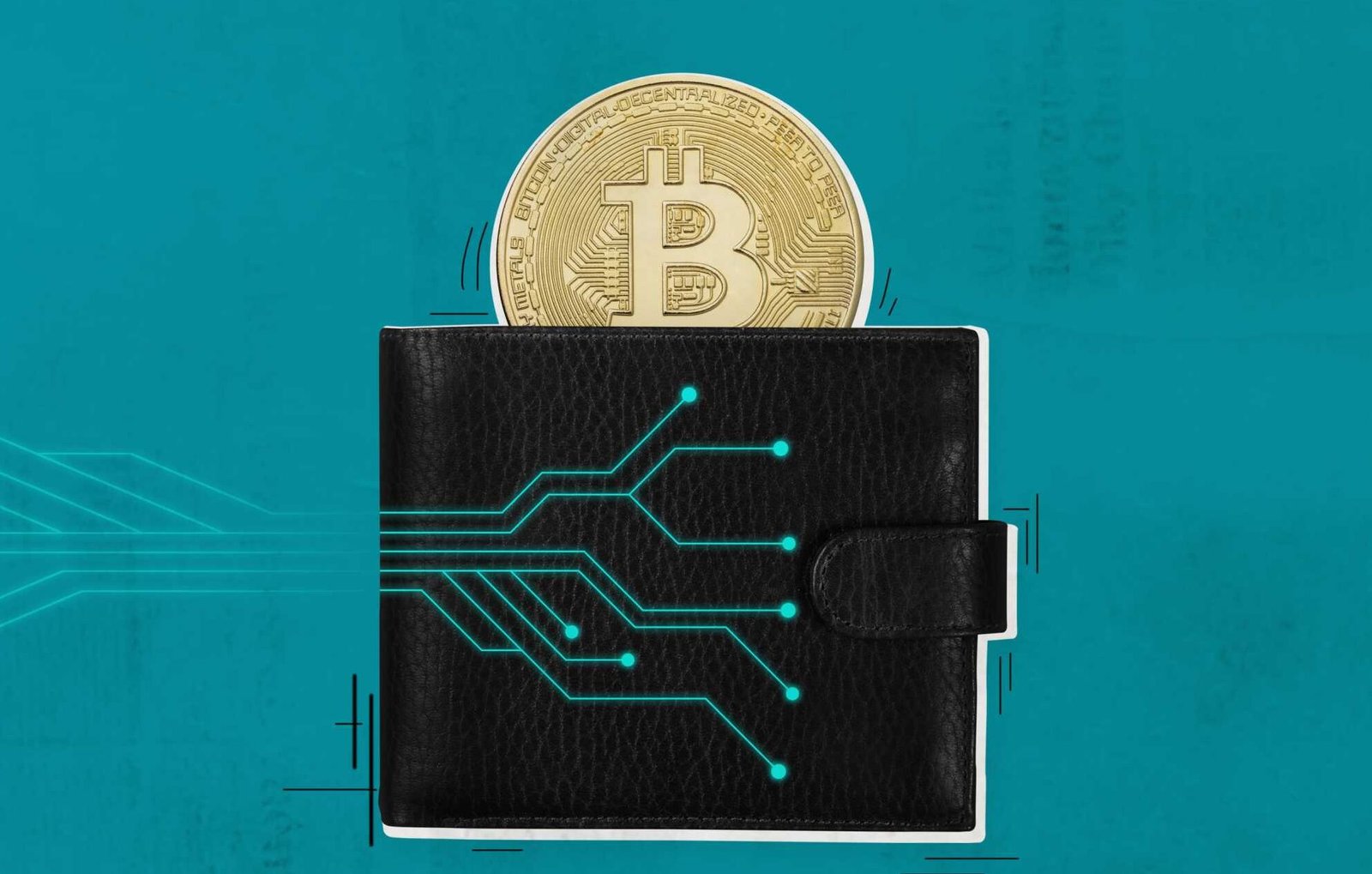The cryptocurrency market has experienced unprecedented growth, with digital assets now worth over $2.3 trillion globally. However, with great opportunity comes great responsibility, especially when it comes to securing your digital investments. Finding the best crypto wallet for security is crucial for protecting your cryptocurrency from hackers, scams, and technical failures that have cost investors billions of dollars.
Security breaches in the crypto space have become increasingly sophisticated, making wallet security the top priority for both newcomers and experienced traders. Whether you’re holding Bitcoin, Ethereum, or any other digital asset, your choice of wallet can determine whether your investments remain safe or become another statistic in crypto theft reports.
This comprehensive guide will help you identify the best crypto wallet for security based on rigorous testing, expert analysis, and real-world security features. We’ll explore hardware wallets, software wallets, and multi-signature solutions that provide the highest level of protection for your valuable cryptocurrency holdings.
What Makes a Crypto Wallet Secure?
Before diving into specific recommendations, it’s essential to understand the fundamental security features that separate ordinary wallets from the best crypto wallet for security. These features form the backbone of cryptocurrency protection and should be your primary consideration when choosing a wallet.
Private Key Control and Storage
The most critical aspect of wallet security is how private keys are generated, stored, and managed. Secure wallets ensure that you maintain complete control over your private keys, never storing them on centralized servers where they could be compromised. The best wallets use advanced cryptographic methods to generate truly random private keys and store them in secure environments isolated from potential threats.
Multi-Layer Authentication
Modern secure wallets implement multiple authentication layers, including biometric verification, PIN codes, and passphrase protection. This multi-factor approach ensures that even if one security layer is compromised, additional barriers protect your funds from unauthorized access.
Open Source Code
Transparency is crucial in cryptocurrency security. The most trusted wallets maintain open-source code that allows security experts worldwide to audit and verify the wallet’s security implementation. This transparency builds trust and ensures that no hidden vulnerabilities or backdoors exist in the wallet’s code.
Hardware Wallets – The Best Crypto Wallet for Security
Hardware wallets consistently rank as the best crypto wallet for security due to their offline storage capabilities and specialized security hardware. These physical devices store your private keys in a secure chip that never connects directly to the internet, providing an impenetrable barrier against online threats.

Ledger Nano X – Premium Security Champion
The Ledger Nano X stands out as one of the most secure hardware wallets available, supporting over 5,500 cryptocurrencies and tokens. Its secure element chip (CC EAL5+) provides bank-level security, while the device’s Bluetooth connectivity allows for convenient mobile management without compromising security.
Key security features include:
- Secure element chip certified for financial transactions
- PIN code protection with auto-lock functionality
- Recovery phrase backup with BIP39 compatibility
- Ledger Live app with built-in security checks
The device costs approximately $149 and offers excellent value for serious cryptocurrency investors who prioritize security above all else.
Trezor Model T – Open Source Excellence
Trezor’s flagship model represents the pinnacle of open-source hardware wallet security. The Model T features a color touchscreen interface and supports over 1,800 cryptocurrencies, making it suitable for diverse investment portfolios.
Security highlights include:
- Fully open-source firmware and hardware design
- Shamir Backup for advanced recovery phrase security
- Passphrase protection for additional security layers
- Regular firmware updates addressing emerging threats
Priced at around $219, the Trezor Model T justifies its cost through superior security features and transparency.
KeepKey – Large Screen Security
KeepKey differentiates itself with the largest screen among hardware wallets, making transaction verification more secure and user-friendly. The device integrates seamlessly with ShapeShift for secure cryptocurrency exchanges.
Notable security features:
- Large OLED display for transaction verification
- PIN matrix security system
- Hierarchical Deterministic (HD) wallet structure
- Offline private key generation and storage
Software Wallets with Superior Security
While hardware wallets provide maximum security, software wallets offer convenience with robust security features for users who prefer digital solutions.
Exodus – User-Friendly Security
Exodus combines security with an intuitive interface, making it accessible for beginners while maintaining strong protection standards. The wallet supports over 100 cryptocurrencies and includes built-in exchange features.
Security features include:
- Local private key storage (never shared with servers)
- Backup and restore functionality
- Password protection with encryption
- Regular security updates and patches
Electrum – Lightweight Bitcoin Specialist
Electrum focuses specifically on Bitcoin security and has operated since 2011 without major security incidents. Its lightweight design and advanced features make it popular among Bitcoin purists.
Key security aspects:
- SPV (Simplified Payment Verification) technology
- Cold storage support
- Multi-signature wallet capabilities
- Hardware wallet integration
Best Crypto Wallet for Security: Multi-Signature Solutions
Multi-signature wallets represent the cutting edge of cryptocurrency security, requiring multiple private keys to authorize transactions. This approach eliminates single points of failure and provides institutional-grade security for high-value holdings.
Gnosis Safe – Enterprise-Grade Multi-Sig
Gnosis Safe leads the multi-signature wallet space with advanced security features designed for teams and institutions. The wallet supports Ethereum and EVM-compatible networks, offering flexibility for DeFi activities.
Security advantages:
- Customizable signature requirements (2-of-3, 3-of-5, etc.)
- Transaction batching for reduced gas fees
- Hardware wallet integration support
- Comprehensive audit trail and governance features
Casa – Simplified Multi-Sig for Individuals
Casa makes multi-signature security accessible to individual users through its innovative key management approach. The service combines hardware wallets with mobile keys for balanced security and usability.
Unique security features:
- 3-of-5 key architecture with emergency recovery
- Professional key recovery services
- Inheritance planning tools
- 24/7 customer support for security issues
Mobile Wallets with Enhanced Security
Mobile wallets must balance security with convenience, and several options excel in providing robust protection for on-the-go cryptocurrency management.
Trust Wallet – Binance-Backed Security
Trust Wallet, owned by Binance, offers comprehensive security features while supporting thousands of cryptocurrencies and DeFi protocols. The wallet’s integration with Binance DEX provides additional trading opportunities.
Security features:
- Biometric authentication (Face ID, Touch ID)
- Secure enclave storage on supported devices
- WalletConnect integration for DeFi security
- Regular security audits and updates
Coinbase Wallet – Institutional Security Standards
Coinbase Wallet applies institutional-grade security measures to individual users, leveraging Coinbase’s extensive security infrastructure while maintaining non-custodial control.
Advanced security measures:
- Secure multi-party computation (MPC) technology
- Biometric authentication options
- Cloud backup with encryption
- Insurance coverage for eligible users
Evaluating Wallet Security Features
When selecting the best crypto wallet for security, consider these critical evaluation criteria to make an informed decision based on your specific needs and risk tolerance.

Backup and Recovery Options
Secure wallets provide multiple backup and recovery options to prevent permanent loss of funds. Look for wallets that support standard recovery phrases (BIP39) and offer additional backup methods like encrypted cloud storage or hardware backups.
Network Security Protocols
Advanced wallets implement cutting-edge network security protocols to protect communications between your wallet and blockchain networks. Features like VPN integration, encrypted communications, and secure node connections enhance overall security.
Regular Security Updates
The cryptocurrency threat landscape evolves rapidly, making regular security updates essential. Choose wallets from developers with proven track records of timely security patches and transparent communication about vulnerabilities.
Common Security Mistakes to Avoid
Even the best crypto wallet for security cannot protect against user errors. Avoid these common mistakes that compromise wallet security:
Sharing Private Keys or Recovery Phrases
Never share your private keys or recovery phrases with anyone, including customer support representatives. Legitimate wallet providers never request this information.
Using Public Wi-Fi for Wallet Access
Public Wi-Fi networks pose significant security risks for cryptocurrency transactions. Always use secure, private networks or VPN connections when accessing your wallet.
Neglecting Software Updates
Outdated wallet software contains known vulnerabilities that attackers can exploit. Enable automatic updates or regularly check for new versions to maintain optimal security.
Storing Large Amounts on Exchange Wallets
Exchange wallets prioritize convenience over security and should only hold funds for active trading. Transfer long-term holdings to dedicated secure wallets.
Security Best Practices for Crypto Wallet Users
Implementing comprehensive security practices amplifies the protection offered by the best crypto wallet for security. These practices create multiple layers of defense against various attack vectors.
Use Strong, Unique Passwords
Create complex passwords containing uppercase letters, lowercase letters, numbers, and special characters. Use different passwords for each cryptocurrency-related account and consider password managers for secure storage.
Enable Two-Factor Authentication
Activate 2FA on all accounts related to your cryptocurrency activities, including exchange accounts, wallet applications, and email accounts. Use authenticator apps rather than SMS when possible for enhanced security.
Regular Security Audits
Periodically review your security setup, including wallet software versions, backup integrity, and access logs. This proactive approach helps identify potential vulnerabilities before they become serious threats.
Geographic Diversification
Consider storing backups in multiple geographic locations to protect against natural disasters or regional instabilities. This strategy ensures wallet recovery remains possible under various circumstances.
Conclusion
Selecting the best crypto wallet for security requires careful consideration of your specific needs, technical expertise, and investment goals. Hardware wallets like Ledger Nano X and Trezor Model T offer maximum security for long-term storage, while software wallets like Exodus and Electrum provide convenience with robust protection for active users.
Multi-signature wallets represent the future of cryptocurrency security, offering institutional-grade protection through distributed key management. Regardless of your choice, implementing proper security practices and staying informed about emerging threats remains essential for protecting your digital assets.



















